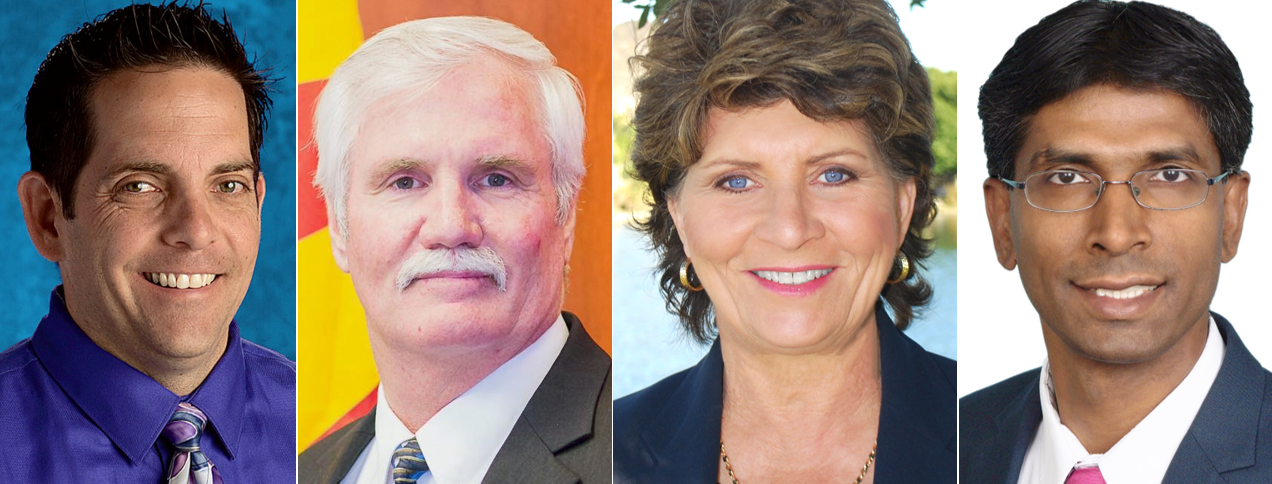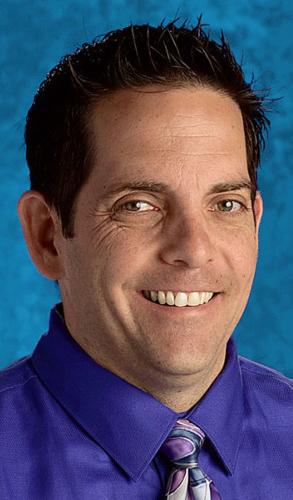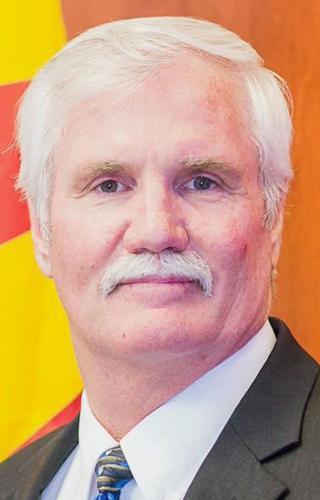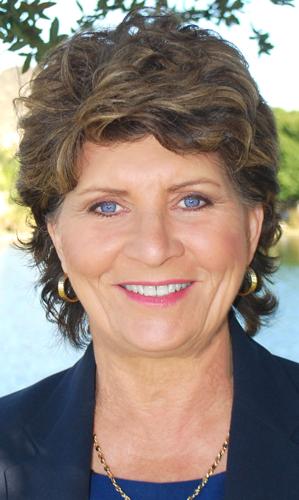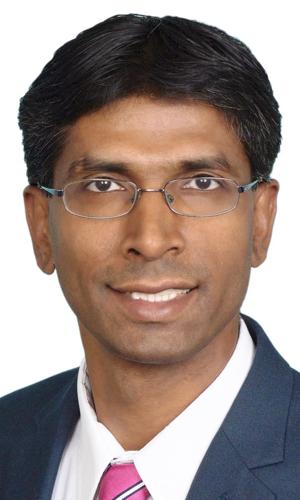Four Republicans are running for two open state House seats in Legislative District 14.
Voters will select two of the candidates in the August primary election. The winners will face Democrat Mike Holmes and Jason Lindstrom in the general election.
The winners will fill the shoes of two Republicans who reached their term limits as state representatives — David Gowan, who is running for U.S. Congress, and David Stevens.
The district includes the Vail and Rita Ranch areas of greater Tucson and much of southeast Arizona.
Early voting begins Aug. 3, and the primary election is Aug. 30.
What sets you apart from the other candidates?
Dennis Barger: “My job. Every day, I am responsible for making tough and informed decisions. I have to lead a group of people, and so leadership really matters. I think my ability to problem-solve over time has been tested and proven.”
Drew John: “Experience and depth, those are the two biggest things. I’m talking about all of it, meaning my business background, my government background and the background of my life.”
Becky Ann Nutt: “It’s not just a single focus, we have to have a multifocus. There are multiple things that have to go on at once to make us successful as a state. So I’m not single-focused.”
Anthony Sizer: “Among other candidates, I’m the least part of any established group or behaviors as far of trustability to representing the people.”
What makes you qualified for this position?
Barger: “My ability to learn; my ability to make decisions once I am informed about them, rather than taking the position that I know everything, and my general experience in having lived in Southern Arizona for well over 35 years.”
John: “I’ve lived in this district my whole life. I’ve watched the ups the downs, the struggles, so I know what’s going on in this district and the state of Arizona. I’m from here, all my life. I didn’t get here six years ago or 10 years ago.”
Nutt: “I feel like I have the expertise, I have the passion, I have the time and I have the focus to work on issues of our communities and our district, and ultimately our state. I have a business background and administration background. We can’t get caught up in what degrees people have. We have to also look at what a person can bring.”
Sizer: “In light of the school-funding issues and accountability issues, many candidates have been elected to our offices and have done contrary to what they’re supposed to be doing, which is representing the people. For me, I believe that the governing school board issues and the school-funding issues is what makes me unique. I spent a substantial amount on investigating Common Core.”
What are the biggest issues in your district?
Barger: “We need to look at retaining quality teachers. The most important thing to do for that is to make sure that teachers can compete in the job market and have a living wage to raise a family. [And] creating jobs in rural Arizona. What can we do to attract businesses in rural Arizona and retain our young people. So the idea of people growing up in small communities, coming to the universities, and staying in the big cities, not bringing their talents back to the rural parts of the state is hurting rural parts. So we have to figure out incentives to make people stay in those communities or return to those communities after they are educated.”
John: “I think the biggest issue in LD 14 is the immigration situation. Probably a big portion of (the district) is right next to the border, and what happens to the families that live right next to the border is that they are struggling to make a living. Because there have been so much robberies and kidnapping, their automobile insurance — because they’re in a high-risk area — is almost unaffordable. As far as immigration goes, I would keep applying the pressure on the federal government, because it’s their responsibility.
If they’re not going to do something about it, then we are going to have to. That might be through legislation or through the Border Task Force.”
Nutt: “Local economies, our education and border security. In our state, we have so many illegals, they are coming over here illegally, that are costing our economy so much money by the things that are going on through that. But we have to get our local economies strong, and we have to focus on our education.”
Sizer: “Really, they have water-rights issues, and one of their big concerns is groups attempting to try and unilaterally remove the control of the water from the local to some external authority.
I understand the concerns of some external entity trying to take control of the local water.”
Who are you voting for in this presidential election and why?
Barger: “I do know that I will not be voting for Hillary Clinton.”
John: “I’ll be voting for Donald Trump. If he makes the Republican nominee, I’ll support the Republican Party.”
Nutt: “I’ll be supporting Trump. He’s a businessman, he understands business and he understands how to get our economy going.”
Sizer: “I will be voting for Trump, even though I may not agree with his verbal (rhetoric) and professionalism. Business-wise, I think that’s important for our country. The big obvious reason is that the last person I want in there is Hillary Clinton because she’s against Christian values.”


